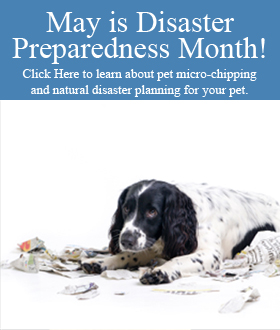A new dog or cat can be a wonderful addition to your family. However you need to be prepared to help feed, groom, train, clean up after and spend lots of time with your new friend. Don’t forget to get food, a crate, grooming brush, leash and collar as well as safe toys. Before you actually pick out a pet, it’s a good idea to meet with your veterinarian. He or she can help your family decide on the type of animal best suited for your family and what you’ll need for that animal. After getting your pet, schedule an appointment with the vet to make sure your new pet is healthy and has a good temperament.
Visits to your pet’s doctor are very important, so pay close attention. Besides giving shots (vaccinations), deworming and doing a complete physical exam, the veterinarian and veterinary technicians will tell you how to train your pet and what to expect of your pet’s behavior. Never play rough – this can lead to biting and aggressive behaviors. For example, “tug-a-war” games aren’t good but “fetch” is fine. Remember, too, that while your new friend can be very playful, he/she also needs time alone to rest and sleep. Regular feeding times and offering high quality food with fresh water are also very important.
Another fun part of taking care of a pet is bathing and grooming. This is a great time to look closely at your pet and make sure his/her coat is clean, free of knotted hair (mats) and fleas, eyes are clear and bright and ears are clean. If you see anything you think isn’t right, let your parents know and, if necessary, they can call the veterinarian’s office. Always tell your parents if you think your pet might be sick – coughing, sneezing, not wanting to eat, acting too tired, throwing up (vomiting) and having diarrhea are all signs that your pet isn’t feeling well and needs help.
When your veterinarian examines a sick pet he or she will ask you many questions in addition to doing a full physical examination to determine why your pet is sick. Your observations and answers are important clues. During the exam the veterinarian will look in your pets eyes, ears, mouth, listen to his/her heart and lungs with a stethoscope, palpate his/her abdomen feeling for pain or abnormalities in his/her internal organs, palpate joints and look at his/her skin. Sometimes more tests are run to figure out (diagnose) exactly what is wrong (diagnosis) and decide on a treatment plan. Diagnostics may include x-rays (radiographs), blood tests, electrocardiograms, ultrasounds, among others. If a pet is very sick then the veterinarian may recommend treatment in the hospital and, in some cases, surgery. Following the veterinarian’s orders on medicating and caring for your pet is essential in helping him/her make a full recovery. Dogs and cats can be sick for many reasons. Eating table scraps, swallowing things that can get stuck in their intestines (I’ve done surgery to remove a computer mouse from a dog’s stomach!), parasites, toxic plants, getting hit by cars, diseases like diabetes and cancer, bacterial infections are just a few examples.
Good care and lots of love will give you a happy, fun, affectionate, furry member of your family for many years. Read books, ask questions and listen carefully to the veterinarian and veterinary technicians’ advice on how to have a healthy and well-behaved pet. Owning a pet may mean a few more chores and responsibilities but they are worth it in the love and companionship you and your family will receive in return.





































